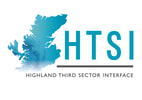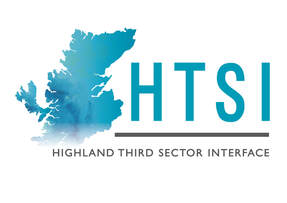Why it is Important
All community groups (large or small, unincorporated or incorporated and with or without charitable status) need to keep some kind of financial records.
Overall responsibility for your group’s financial management remains with the committee (or board) as a whole but you may choose to delegate the task of keeping accessible, accurate and up to date financial records to a committee member who acts as the group’s treasurer.
The Treasurer will then be expected to:-
The Treasurer’s role in keeping the committee informed about the group's financial position is particularly important. The Treasurer needs to be able to convey financial information in easily understood terms so that the rest of the committee are fully aware of the financial position of the group at all times, and can make any necessary financial decisions based on full knowledge of the implication.
If your group is a registered charity in Scotland, your committee (the Charity Trustees) are legally required to be in a position where they are able to disclose the financial position of the group at any time.
All community groups (large or small, unincorporated or incorporated and with or without charitable status) need to keep some kind of financial records.
Overall responsibility for your group’s financial management remains with the committee (or board) as a whole but you may choose to delegate the task of keeping accessible, accurate and up to date financial records to a committee member who acts as the group’s treasurer.
The Treasurer will then be expected to:-
- keep the rest of the committee informed about projected income and expenditure, prepare estimates, contribute to cash flows and budget plans
- keep financial records on a day book or a spreadsheet
- pull together the financial records information to prepare the group’s Annual Accounts.
The Treasurer’s role in keeping the committee informed about the group's financial position is particularly important. The Treasurer needs to be able to convey financial information in easily understood terms so that the rest of the committee are fully aware of the financial position of the group at all times, and can make any necessary financial decisions based on full knowledge of the implication.
If your group is a registered charity in Scotland, your committee (the Charity Trustees) are legally required to be in a position where they are able to disclose the financial position of the group at any time.
Key points
- A typical day/cash book/ledger or computer spreadsheet should note every transaction (sales, purchases, income and payments) – in and out - on a daily basis.
- When your bank statements come in, check them against the day book so that you have an accurate idea of your cash in hand. Keep a separate petty cash book if you need to, but remember that this will need to be drawn together with the day book at the end of the financial year, so be consistent.
- Under the current charity legislation in Scotland, if your group is a registered charity, your Charity Trustees have a legal duty to keep proper accounting records which:-
- show daily records of money received and spent
- record assets and liabilities
- disclose the financial position at any time
- produce a statement of account
- Best practice for Financial Record Keeping
- always get and keep receipts, no matter how small the amount
- always give receipts for money received and pay cash into the bank as soon as possible
- keep petty cash in a secure place and always get people to sign it in and out by entries in a petty cash book. Don't count cash on your own, always have someone who can verify your calculations
- pay cash and cheques into the organisations bank account weekly
- pay bills on time and, if your group employs staff, ensure staff salaries are paid on time
- if cash is given as a prize, for example, in a raffle, openly display a list of winners in a public place or inform the local press
- if your group holds a fundraising event record the expenditure (costs of any venue, refreshments, etc.) separately to your income (entrance fees, sales etc)
- get into the habit of recording grant income as either 'restricted' (that is, the funder has specified exactly what the grant is for) or 'unrestricted' (that is, core funding or funding for general running costs)
- record separately and clearly any expenditure against restricted grant income
- Your group may also have a legal requirement to keep your financial records for a specified number of years. If you are a registered charity, you need to keep financial records for 6 years
- All community groups (large or small, unincorporated or incorporated and with or without charitable status) need to keep some kind of financial records.
- It is a good idea for your committee to get into the habit of recording grant income as either 'restricted' or 'unrestricted'. If your group is a registered charity in Scotland, making a clear distinction between these two types of funds is a legal requirement for your Annual Accounts. Keeping a record which already notes the distinction between restricted and unrestricted funds will make things easier at the financial year end.
Links for more information
Voluntary Sector Archives
Record keeping toolkit
http://toolkit.voluntarysectorarchives.org.uk/sfg1k4kchs/introduction/
SCVO, Scottish Council for Voluntary Organisations
Managing Money Checklist
https://scvo.org.uk/support/running-your-organisation/keystone/managing-money
Voluntary Sector Archives
Record keeping toolkit
http://toolkit.voluntarysectorarchives.org.uk/sfg1k4kchs/introduction/
SCVO, Scottish Council for Voluntary Organisations
Managing Money Checklist
https://scvo.org.uk/support/running-your-organisation/keystone/managing-money

